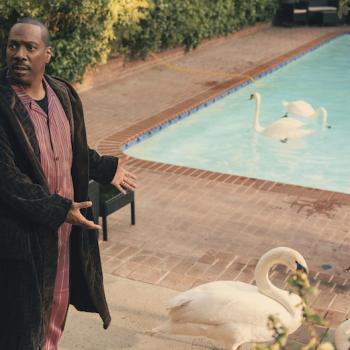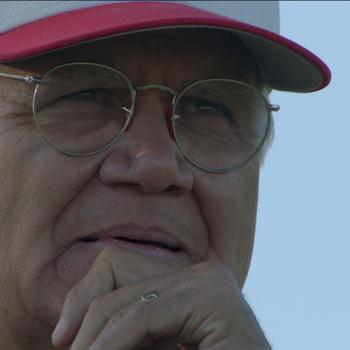
Einstein was Jewish, but he certainly wasn’t one to observe the Sabbath. He thought that believing in a personal God, the sort of God found in most monotheistic religions, to be “naïve.”
But despite his rejection of organized religion, Einstein held a deep respect for faith and spirituality.
“I am a deeply religious nonbeliever,” Einstein once said. Even that wasn’t precisely true. In an interview with George Sylvester Viereck, he denied that he was an atheist (as some said that he was) and not precisely a pantheist (as some call him today). Even though he called himself an agnostic, it seemed he believed that there was something out there. Einstein said:
We are in the position of a little child entering a huge library filled with books in many languages. The child knows someone must have written those books. It does not know how. It does not understand the languages in which they are written. The child dimly suspects a mysterious order in the arrangement of the books but doesn’t know what it is. That, it seems to me, is the attitude of even the most intelligent human being toward God.
And even though atheists have sometimes tried to turn Einstein into one of their own, Isaacson believes that Einstein was more likely to criticize atheists than people of faith. “They are creatures who—in their grudge against the ‘traditional opium of the people’—cannot hear the music of the spheres,” he wrote to a friend.
Einstein didn’t believe in the same God I do, but it seems he came at the subject of faith with, strangely, a sense of respect, even reverence–something Genius suggests was somewhat lacking elsewhere in his life. When you read his writings on religion, he doesn’t come across as shrill or strident, as some of today’s atheist can sound. He once said that he would never try to talk someone out of their faith, because “such a belief seems to me preferable to the lack of any transcendental outlook.” He faced the subject of divinity as, I think, scientists should face any question of weight and merit: With an open mind.
“The most beautiful emotion we can experience is the mystical,” he was quoted as saying in Einstein on Politics; His Private Thoughts and Public Stands on Nationalism. “It is the power of all true art and science. He to whom this emotion is a stranger, who can no longer wonder and stand rapt in awe, is as good as dead. To know that what is impenetrable to us really exists, manifesting itself as the highest wisdom and the most radiant beauty, which our dull faculties can comprehend only in their most primitive forms—this knowledge, this feeling, is at the center of true religiousness. In this sense, and in this sense only, I belong to the rank of devoutly religious men.”
Perhaps Genius will explore this facet of Einstein as the season trundles on. I hope so. Frankly, I don’t really care to watch Einstein have affairs with various women. How he touches transcendence is far more interesting.













